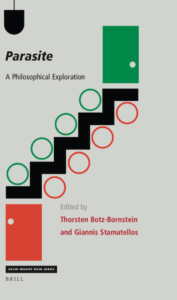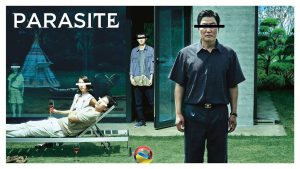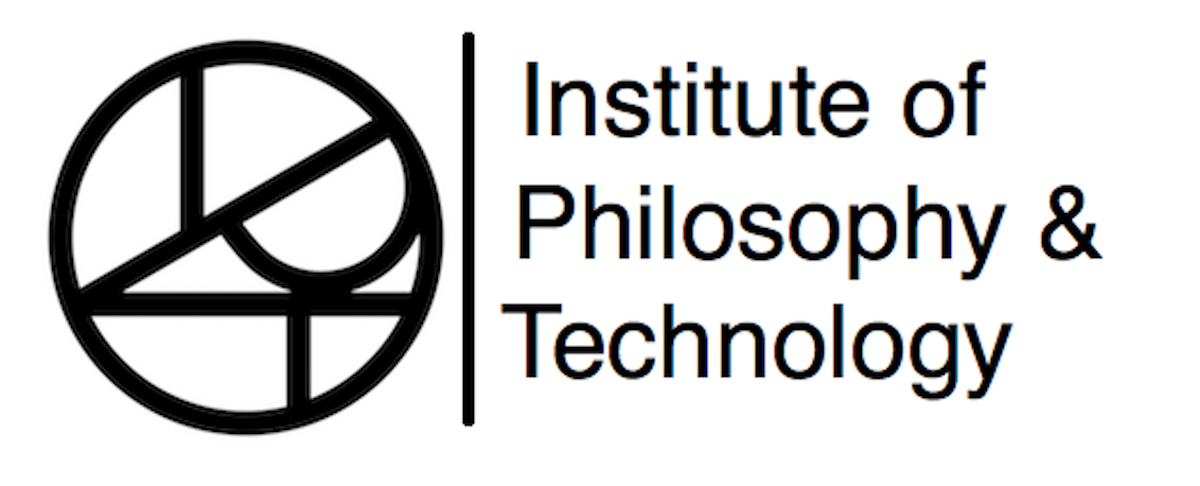Parasite: A Philosophical Exploration

On the film Parasite by Bong Joon-Ho (2019)

Book edited by Thorsten Botz-Bornstein and Giannis Stamatellos
Brill 2022
“The world of parasites constitutes perhaps one of the most exciting chapters of biology
because it introduces the reader into the vast field of philosophical reflections”
Argentinian parasitologist Juan Jose Boero
Parasite is the highest-grossing Korean film, won four Oscars, and is the first non-English film to win an Oscar for Best Picture. It is also a philosophically very interesting film because it presents the ethico-biological problem of parasitism in an artistic and metaphorical fashion. The original concept of παρασιτῶ means to “board or lodge with,” and it has been dealt with in ancient political philosophy, modern philosophy of science, and ethics, from the Stoics through Marx to Nietzsche. Lucian’s (125–180 AD) De Parasito can almost be read as a commentary of the film, as he satirically defends the art of parasitism. For the Romans, the parasitus was not strictly pejorative but simply a person living off the hospitality of others in return for flattery. The parasite is not necessarily a thief, but can be a seducer, a creator, a companion, or a mimic… The discussion about friendship and flattery has a long history in philosophy. Note, for example, Plutarch’s influential “How to Tell a Flatterer from a Friend.” For Nietzsche, the parasite is the priest, but parasitism is also the vengeance of the weak. According to Maoist ideology, the parasites are the rich, but others would say it’s the poor.
Michel Serres, in his book on chaos theory called The Parasite, holds that parasites are not useless, but that they establish communication between different spheres and transform the picture of the whole. They push development towards the organic. Parasites bring in coincidences, without which development would be too straightforward. Parasites activate defense systems by creating perpetual tension. New links with the host need to be established. Very similarly, Mario Coccia’s provocative “technological parasitism” explains technical evolution through systems and parasitic subsystems.
We are looking for contributions from philosophers who are ready to analyze the phenomenon of parasitism though Bong Joon-Ho’s film.
It will be the first English language book on a single Korean film!
Check updates https://www.botzbornstein.org/parasite
Deadline for abstracts (200 words): Aug. 31 2020
Dealine for complete papers: April 30 2021
Please send proposals to botz.t@gust.edu.kw and gstamatellos@ipt.gr
Topics suggestions:
-
How does this film reflect parasitology in biology?
-
Parasites from biology to bioethics
-
Parasitism and Aristotelian retributive justice
-
A Marxist critique or a pseudo-Marxist film?
-
Nietzsche’s master-slave morality
-
Parasitism and Will to Power
-
Monsters and intruders
-
The transgressive policy of parasitism
-
Is the parasitical margin the real center of creativity?
-
“We are just living off the rubbish that capitalist society produces.” The hippy philosophy of the 1960s
-
The “pity that has the smell of the mob” (Nietzsche). A philosophy of smell
-
Foucault’s biopolitics / biopower
-
Technological parasitism
-
Flattery and Platonic philosophy

